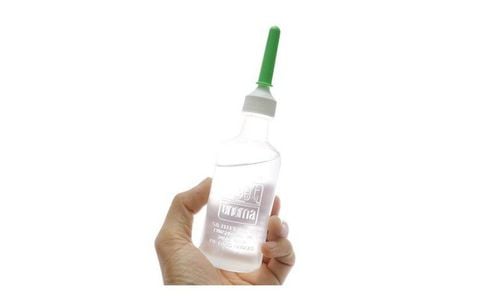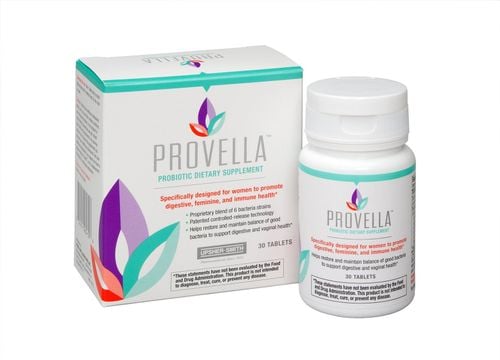This is an automatically translated article.
The article was professionally consulted by resident Doctor Duong Van Sy - Department of Pediatrics - Neonatology - Vinmec Hai Phong International General Hospital.Irritable bowel syndrome in children is often difficult to identify because they do not know how to accurately describe the symptoms, parents should equip themselves with basic knowledge to take better care of their children.
1. What is Irritable Bowel Syndrome in Children?
Irritable bowel syndrome is a fairly common problem in the large intestine. The large intestine (also known as the colon) absorbs water and some nutrients from food after being digested in the small intestine. Unabsorbed food slowly moves out of the body and is called feces (or waste).In order for nutrients to circulate in the intestines, the muscles in the colon and the rest of the body must work closely together. If this process is disrupted by a problem, the food in the large intestine cannot move smoothly, it becomes blocked or sometimes moves too quickly. This can make the child feel sick and upset.
Doctors also say that the intestines of children with irritable bowel syndrome are often more sensitive. So, certain things that might cause little discomfort in a normal child can cause severe pain in a child with irritable bowel syndrome.

Cơ quan ruột của những đứa trẻ mắc hội chứng ruột kích thích thường nhạy cảm hơn bình thường
2. Symptoms of Irritable Bowel Syndrome in Children
All children can experience occasional abdominal pain, most often with constipation (stools that are hard and difficult to pass) or with diarrhea (loose and watery stools). However, when one child has irritable bowel syndrome, the child may feel unable to stop going to the toilet or vice versa, others may experience bloating, stool stuck inside, and extreme discomfort.3. Diagnosis of irritable bowel syndrome in children
Irritable bowel syndrome is diagnosed mainly by history, when the child has had abdominal pain or discomfort at least once a week for at least 2 months without any disease or damage inside the digestive tract. Symptoms usually occur after eating, in infants will occur after the baby is breastfed or bottle-fed. Your baby will have less pain after having a bowel movement.4. Causes of Irritable Bowel Syndrome in Children

Sự căng thẳng có thể ảnh hưởng đến trẻ em mắc hội chứng ruột kích thích
In particular, stressed children can trigger more pronounced illness symptoms, for example children facing a very important exam tomorrow or when a child sees a parent arguing. each other and begin to feel anxious.
Food that a child eats can also be a trigger for illness, but the trigger will be different for each child. For example, a high-fat diet can adversely affect some children, while drinks high in sugar can cause diarrhea in others. Eating a lot of spicy or filling foods also causes irritable bowel syndrome in children. If your child has irritable bowel syndrome, parents should limit the child's intake of foods that aggravate the symptoms.
5. Treatment of irritable bowel syndrome in children
There is no specific cure for irritable bowel syndrome. The symptoms of the disease can be treated with the following guidelines:Change in diet, diet and nutritional composition. Use drugs. Probiotic Supplements. Psychotherapy. If your child has irritable bowel syndrome that leads to severe abdominal pain, the doctor may prescribe some medications for pain, gas, constipation, or diarrhea, depending on the symptoms. right. However, the best solution for a child is to learn what actions or habits may make symptoms worse and try to help them stay away from them.
While the foods that cause IBS in children are often different for different children, in general the following foods and eating habits can be the "culprits" of the disease:
Children often eat too much at each meal. Children often eat spicy, hot foods. Children like to eat foods rich in fat Children eat chocolate often. Intolerance to dairy products such as ice cream or cheese. Parents should give children a lot of fruits, vegetables, foods high in fiber, yogurt with beneficial bacteria, ... to help keep the intestines working properly. Besides, parents can also give their children plenty of water to drink every day. In addition, parents should also supplement their children with essential micro-minerals such as zinc, lysine, chromium, selenium, vitamin B1, ... to fully meet the nutritional needs of children. The addition of these essential vitamins not only aids digestion, enhances nutrient absorption, but also improves anorexia, helps children eat well. Parents can simultaneously apply dietary supplements and functional foods derived from nature for easy absorption. Most importantly, improving your baby's symptoms often takes a long time. Combining many types of functional foods at the same time or changing many types in a short time can make the baby's digestive system unable to adapt and completely not good. Therefore, parents must be really persistent with their children and regularly visit the website vimec.com to update useful baby care information.














